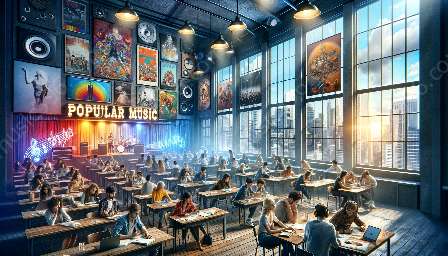Popular musicians have long held significant influence on political discourse and policy-making, serving as powerful agents of change and shaping public opinion. Their impact can be observed in various historical and contemporary contexts, where artists have used their platforms to advocate for social justice, human rights, and political reform. This article delves into the multifaceted relationship between popular music and politics, examining how musicians have wielded their artistry to address societal issues and drive policy change.
Historical Perspective: Musicians as Political Agitators
Since the early 20th century, popular musicians have played a pivotal role in challenging political norms and mobilizing public opinion. From the protest songs of Woody Guthrie and Pete Seeger during the labor movements of the 1930s and 1940s to the anthems of the civil rights era by artists like Nina Simone and Bob Dylan, music has been a powerful catalyst for social and political change. These musicians used their art to express dissent, critique oppressive systems, and galvanize collective action, ultimately influencing policy discussions and legislative efforts.
The Counter-Culture Movement
In the 1960s and 1970s, popular musicians became emblematic figures of the counterculture movement, engaging in anti-war activism and advocating for civil liberties. Icons such as John Lennon and Joan Baez utilized their celebrity status to amplify the voices of marginalized communities and challenge governmental policies. Their music served as a unifying force for the burgeoning social movements of the era, igniting public discourse on issues ranging from foreign policy to racial equality.
The Evolution of Popular Music and Political Activism
As popular music continued to evolve, diverse genres and subcultures emerged, each carrying its own socio-political messages. Hip-hop, for instance, became a vehicle for urban youth to express grievances and advocate for empowerment, with artists like Public Enemy and N.W.A sparking conversations about systemic racism and economic inequality. Similarly, punk rock bands, such as The Clash and Sex Pistols, challenged governmental authority and promoted radical societal change through their music.
Shaping Public Opinion and Policy Reform
Recent decades have seen popular musicians using their influence to address pressing global issues, including climate change, LGBTQ+ rights, and immigration reform. Musicians, such as Beyoncé and Kendrick Lamar, have leveraged their platforms to advocate for social justice and influence public discourse. This contemporary wave of activism has led to increased awareness around policy issues, with artists partnering with advocacy organizations and political movements to enact meaningful change.
Impact on Policy-Making and Legislative Change
The influence of popular musicians transcends mere rhetoric, often spurring tangible policy outcomes. Musicians have successfully lobbied for legislative reform and raised awareness about critical social issues through benefit concerts, public campaigns, and advocacy initiatives. Prominent examples include Live Aid, a concert series organized by musician Bob Geldof to raise funds for famine relief in Africa, and the Farm Aid concerts, which raised awareness about the challenges faced by family farmers in the United States.
Legitimizing Political Discourse Through Music
More than just influencing policy outcomes, popular musicians have played a key role in legitimizing political discourse through their music. By engaging with political themes and offering critical perspectives on societal issues, musicians have spurred public conversations and challenged preconceived notions. Their ability to communicate complex political ideas in accessible, emotionally resonant ways has broadened the scope of political engagement among diverse audiences.
Conclusion: The Enduring Impact of Musicians on Politics
Popular musicians continue to exert significant influence on political discourse and policy-making, serving as integral actors in shaping public attitudes and policy agendas. Their ability to bridge the worlds of art and politics, and to connect with audiences on an emotional level, positions them as indispensable voices in the socio-political landscape. As we move into an era of heightened global challenges, the role of popular musicians in driving discourse and policy-making is likely to remain paramount.


